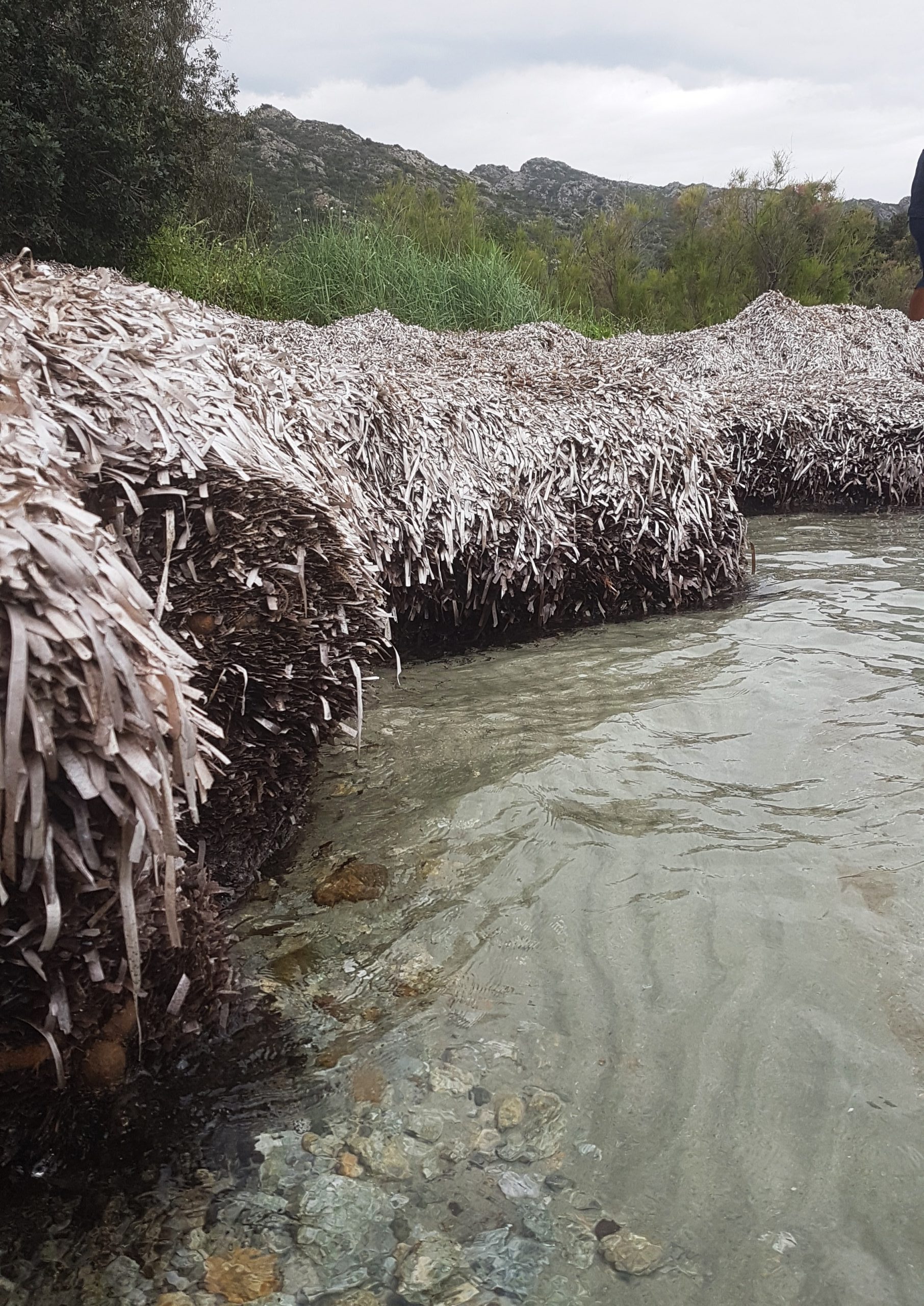ÉCoMéd -Study of the Posidonia oceanica-benches system for a natural solution
against coastal erosion in the Mediterranean
The posidonia benches are a barrier against the waves, promote the deposit of sand, are a habitat and food feeding the food web of the beach and the shallow water, and fertilize the posidonia meadows when they return to the sea. Some fish that recruit near beaches, such as sea bream, red mullet and marbled, can benefit from this nutrient supply.
The ECOMED project aims to improve ecological knowledge and perception of Posidonia benches among users in order to understand how to use them as a nature-based erosion solution. The goal is also to try to communicate in the form of environmental education how Posidonia in the form of dead leaves (benches) on beaches can provide many ecosystem services. We offer programs at the interface between environmental education and scientific experiments, in complementarity with the POSBEMED2 project.
The ECOSEAS laboratory (UMR7035-CNRS), project leader, will lead the scientific experiments, THALASSA Marine research will lead the field work, the CDMM will lead the environmental education program and the CSIL will liaise with stakeholders to support the community towards an acceptable ecological transition.
In 2021, THALASSA Marine research conducted the study of Posidonia meadows located in front of the 6 studied beaches between Saint-Jean-Cap-Ferrat (Paloma beach, Passable and Fosses), Antibes (Salis beach) & Juan-les -Pins (Ondes and Galice beach). For each beach / herbarium complex, visual censuses by transect method were carried out on the seagrass beds to assess the state of the fish populations, the health of the meadow was measured by quadrat methods (covering, density and diversity of invertebrates). Visual censuses were also carried out by the fixed point method at the level of Posidonia litter located at the edge of the beaches in order to characterize the populations and the behavior of fish feeding and / or taking refuge in these litters.
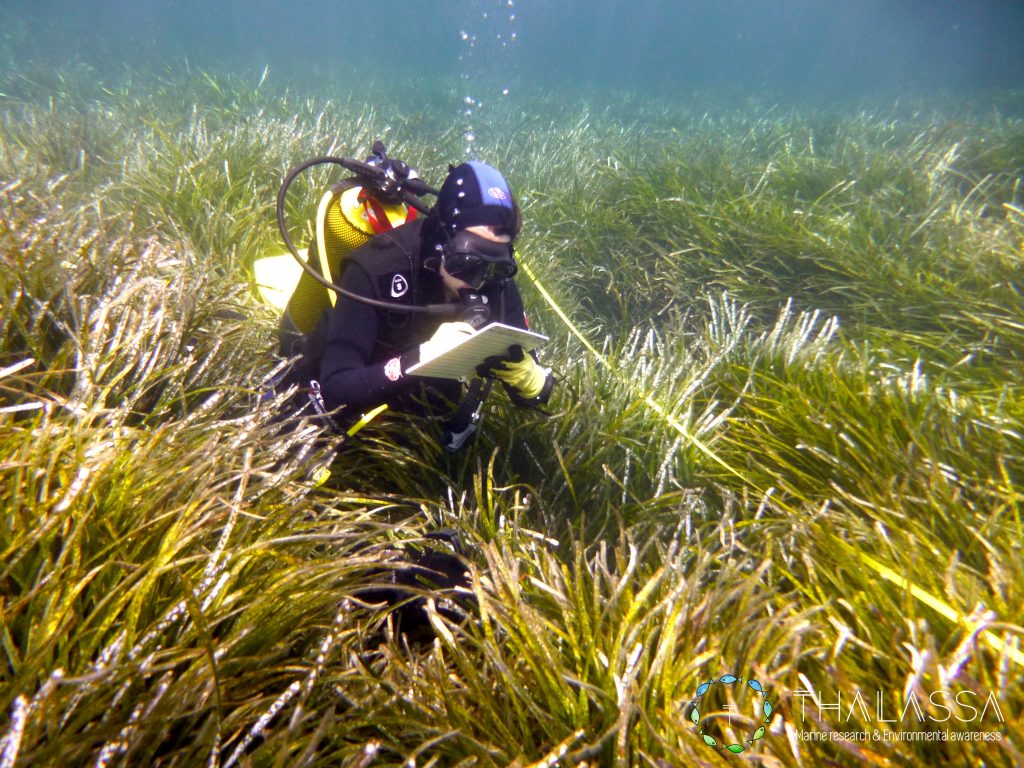
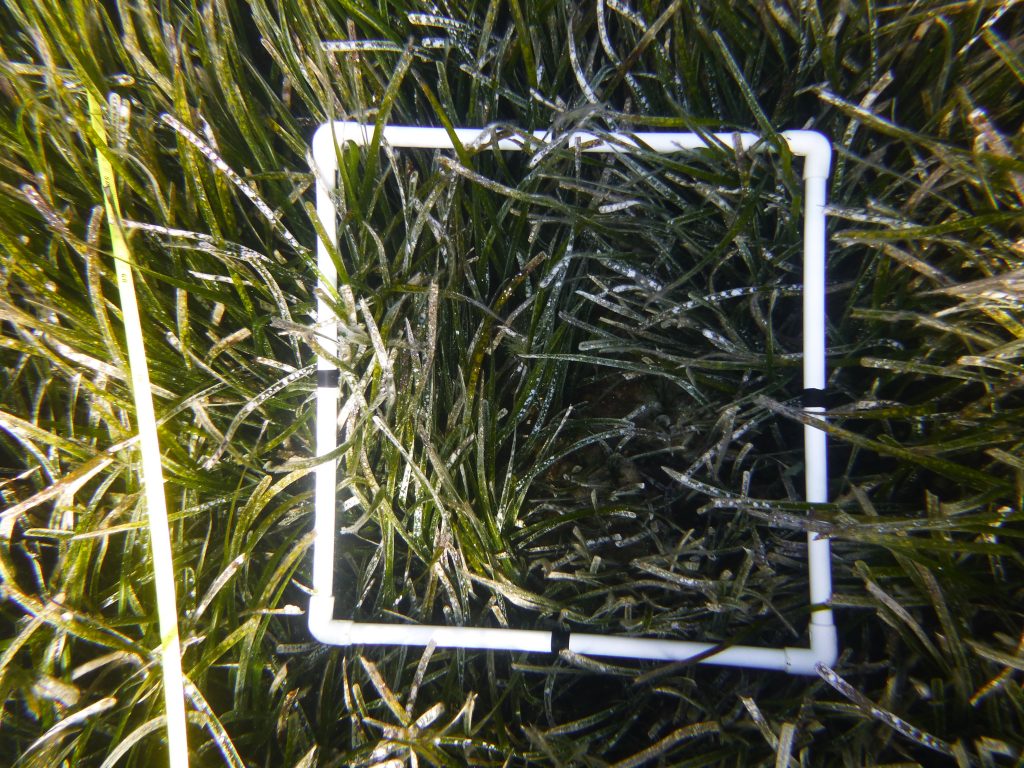
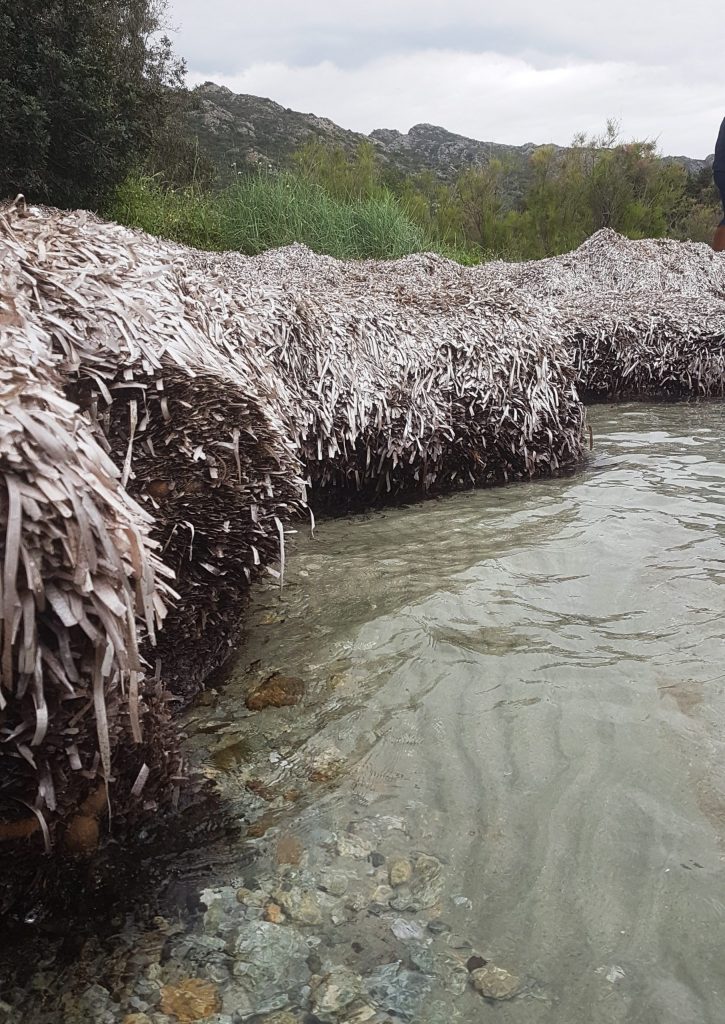
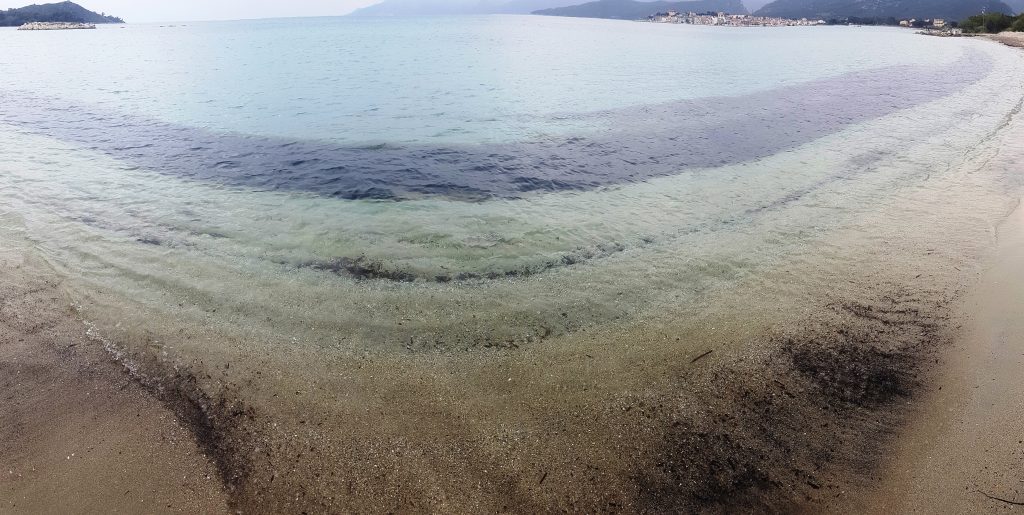
Grant obtained from the Région SUD (France)
ECOSEAS link : http://ecoseas.unice.fr/index.php/research/en-cours/194-2021-06-11-07-42-49


